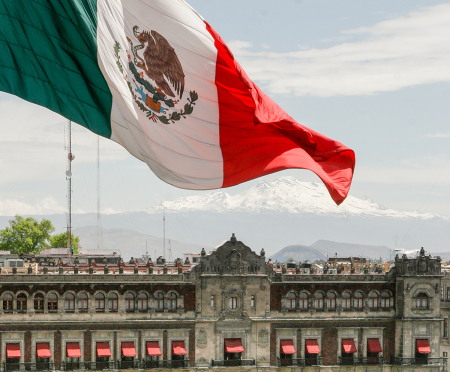Mexican citizens to face up to 24 years in prison if lawmakers pass 'conversion therapy' ban

More than 170 pro-family civil society organizations have reportedly voiced their opposition to a proposed national "conversion therapy" ban in Mexico, fearing it could effectively lead to a "regime of terror" impinging on the rights of healthcare workers.
Organizations spearheaded by the National Front for the Family and the Citizens’ Initiative for Life and Family sent a letter to leaders of the political parties in Mexico's lower Chamber of Deputies, warning the language of the ban on sexual orientation change efforts therapy for unwanted same-sex attractions or gender confusion, often derisively called conversion therapy, is too ambiguous, according to Spanish-speaking Catholic outlet ACI Prensa.
The proposed change would modify federal law in Mexico to punish anyone who "performs, imparts, applies, forces, or finances any type of treatment, therapy, service, or practice that hinders, restricts, impedes, undermines, nullifies, or suppresses the sexual orientation, gender identity, or expression of a person."
Practitioners who run afoul of the ban risk up to six years in prison and fines of more than 207,000 Mexican pesos, or nearly $12,000, according to ACI Prensa. Such penalties could be doubled if minors are involved, and the bill also stipulates that parents and guardians "who engage in the penalized conduct will be subject to being sanctioned with a reprimand or warning at the discretion of the judge."
The Mexican Senate overwhelmingly passed a draft of the bill last October before sending it to the lower chamber, where it continues to be debated. Sixty-nine senators voted in favor, two against, and 16 abstained, the Senate announced on X at the time.
The pro-family organizations reportedly took issue with terms in the ban they deemed "extremely subjective and ambiguous," and warned citizens could get up to 24 years in jail simply because of "a simple complaint from someone who subjectively believes that their sexual orientation, identity, or gender expression is being 'hindered, restricted, impeded, undermined, nullified, or suppressed.'"
"Mexico would be turned into the country with the least respect for fundamental freedoms, since a regime of terror would be installed contrary to health care workers’ [freedom to] exercise their profession, freedom of speech, freedom of religion, and academic freedom," they further warned.
Rodrigo Iván Cortés, who serves as president of the National Front for the Family of Mexico, told ACI Prensa earlier this year that the potential law "is an embarrassment; it’s a completely nonsensical bill." He also alleged it "violates the right to health care, violates the right to freedom of speech, religious freedom, and academic freedom."
Marcial Padilla, director of the Mexican platform ConParticipación, predicted to the outlet that the law, if passed, "will turn into a witch hunt against parents and psychologists."
In 2020, Mexico City became the first municipality in Mexico to ban conversion therapy, a move that received cross-party support, according to Reuters. Fifteen other Mexican states have since followed suit, the most recent being Sinaloa in July.
The language of the Mexican capital's municipal ban also prohibits any treatment that would "nullify, hinder, modify or undermine" a person's sexual orientation or gender identity, and carries with it a potential five-year prison sentence and even harsher penalties if minors are involved.
Canada is so far the only North American country to have issued a federal ban on conversion therapy, passing Bill C-4 in 2022. The law also carries with it a potential five-year jail sentence.
Conversion therapy bans exist at least partially in more than 25 U.S. states and the District of Columbia, as well as numerous cities and municipalities.
The United Nations has likened conversion therapy to torture, and U.N. Independent Expert on Sexual Orientation and Gender Identity Victor Madrigal-Borloz called for a global ban on it in 2020.
Jon Brown is a reporter for The Christian Post. Send news tips to [email protected]





















